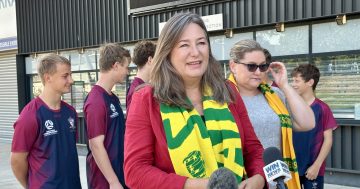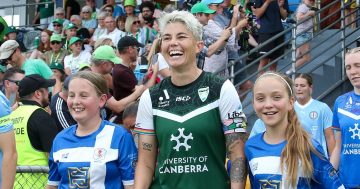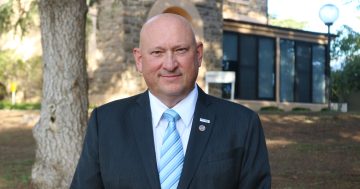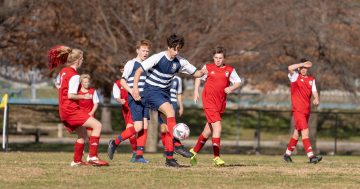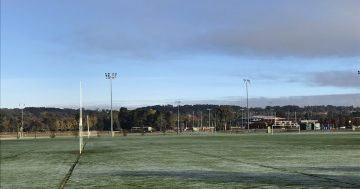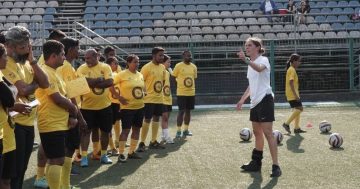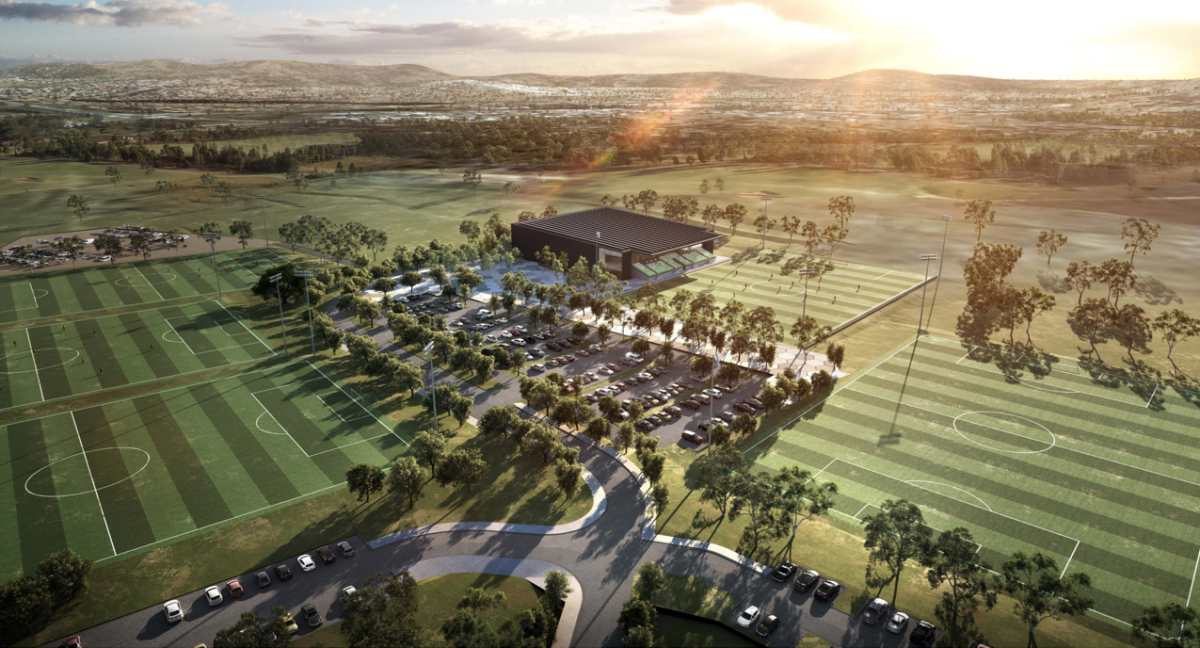
An aerial artist’s impression of the proposed Throsby’s Home of Football. Photo: ACT Government.
A new headquarters for the round ball game in Canberra is a step closer after the approval of the Estate Development Plan for the $33.5 million Throsby Home of Football project.
The ACT Government will contribute $29 million and Capital Football, which will operate the facility, the remaining $4.545 million.
The project will include sports fields, internal access roads, car parks and a grandstand on the 25.5-hectare site on the corner of Horse Park Drive and Gecko Way.
The approval coincided with the announcement of an extra $250,000 over two years for the ACT’s women’s A-league team, Canberra United.
A government spokesperson said it would now move to the detailed design phase, with construction scheduled to start in 2024 but could not say when a development application would be lodged or when it would be completed, only that the planning pathway would be reviewed during the early design stages.
Despite the surge in construction costs over the past 18 months, the budget remains at $33.5 million, but the design phase would also consider whether additional funding is required, or if the project can be staged.
The spokesperson said the government was not considering asking the Commonwealth for assistance if more funding was required.
The 2023-24 Budget included $1 million this financial year and $8 million the next to cover detailed design and the start of civil works.
Minister for Sport and Recreation Yvette Berry said the Throsby Home of Football would be a great facility that supports Canberra United, football and the community well into the future.
“It’s great to have the Estate Development Plan DA approved so we can get on with delivering this important piece of sporting infrastructure,” she said.
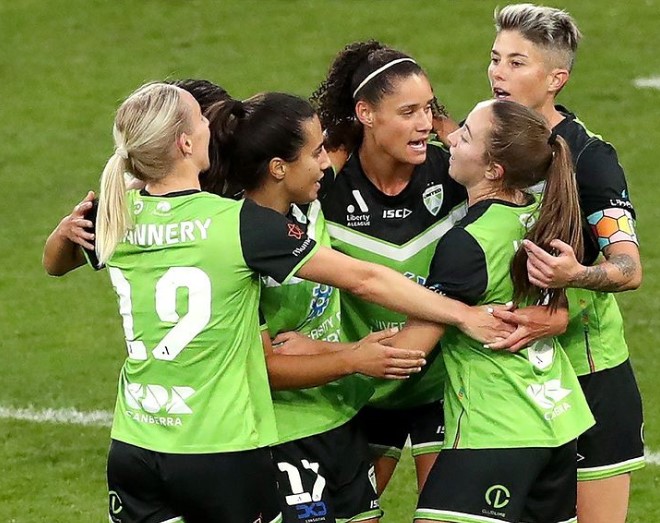
Canberra United will get a financial boost from the ACT Government. Photo: Canberra United.
Capital Football boss Ivan Slavich said the organisation was excited about the prospect of the Home of Football in Throsby.
“This facility is vital to the future of football in Canberra and Capital Football is looking forward to the commencement of building works,” he said.
The ACT Government first announced plans for the project in 2019, and a design for a facility that met national and international football requirements was released for community consultation last September.
The facility will include five open-air playing fields – a grass competition field, two grass community fields, a synthetic training field and a synthetic community field.
There will also be an indoor futsal facility, collocated with offices, parking for 301 vehicles, with overflow parking of at least 200 vehicles for major events and various facilities and maintenance buildings, and the grandstand.
The facilities will be open to the community when not used for formal games and training activities, except for the futsal building and the enclosed main competition football field, which Capital Football will manage.
Ms Berry said the government was proud to support Canberra United since 2008-09.
“The ACT Government has a well-established partnership with Canberra United and I’m proud to be able to increase our contribution to the sport,” she said.
“After the Women’s World Cup, I have no doubt there will be added interest in the A-League Women competition, and we wish Canberra United all the best as they prepare for the season ahead.”
Mr Slavich said Capital Football was delighted about the increased funding for Canberra United to assist with the costs associated with running an elite-level football club in the national capital.
“Running a club to the highest possible standards is an expensive venture, and we are grateful that the ACT government have pledged the additional funding to support Canberra United,” he said.













